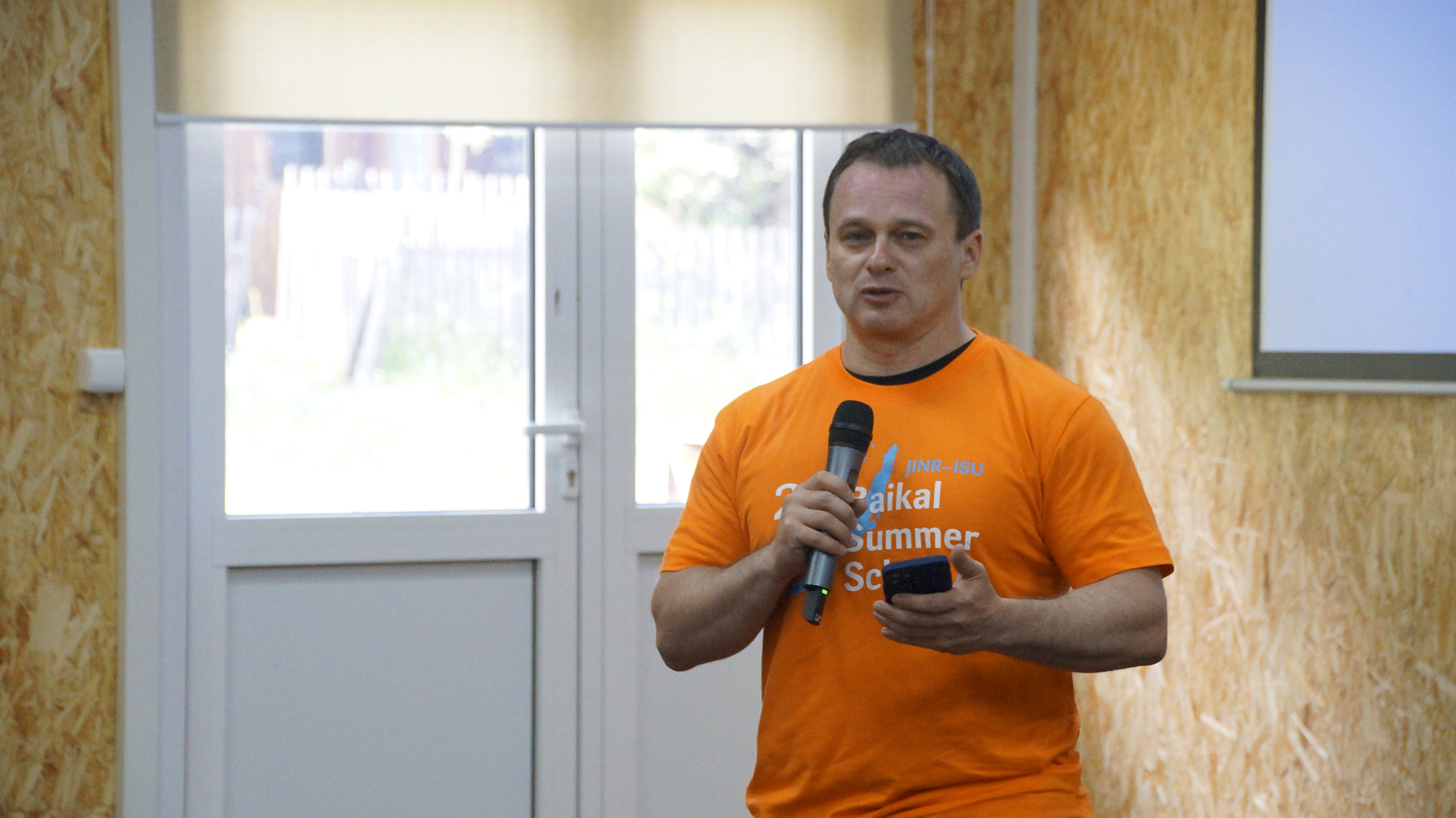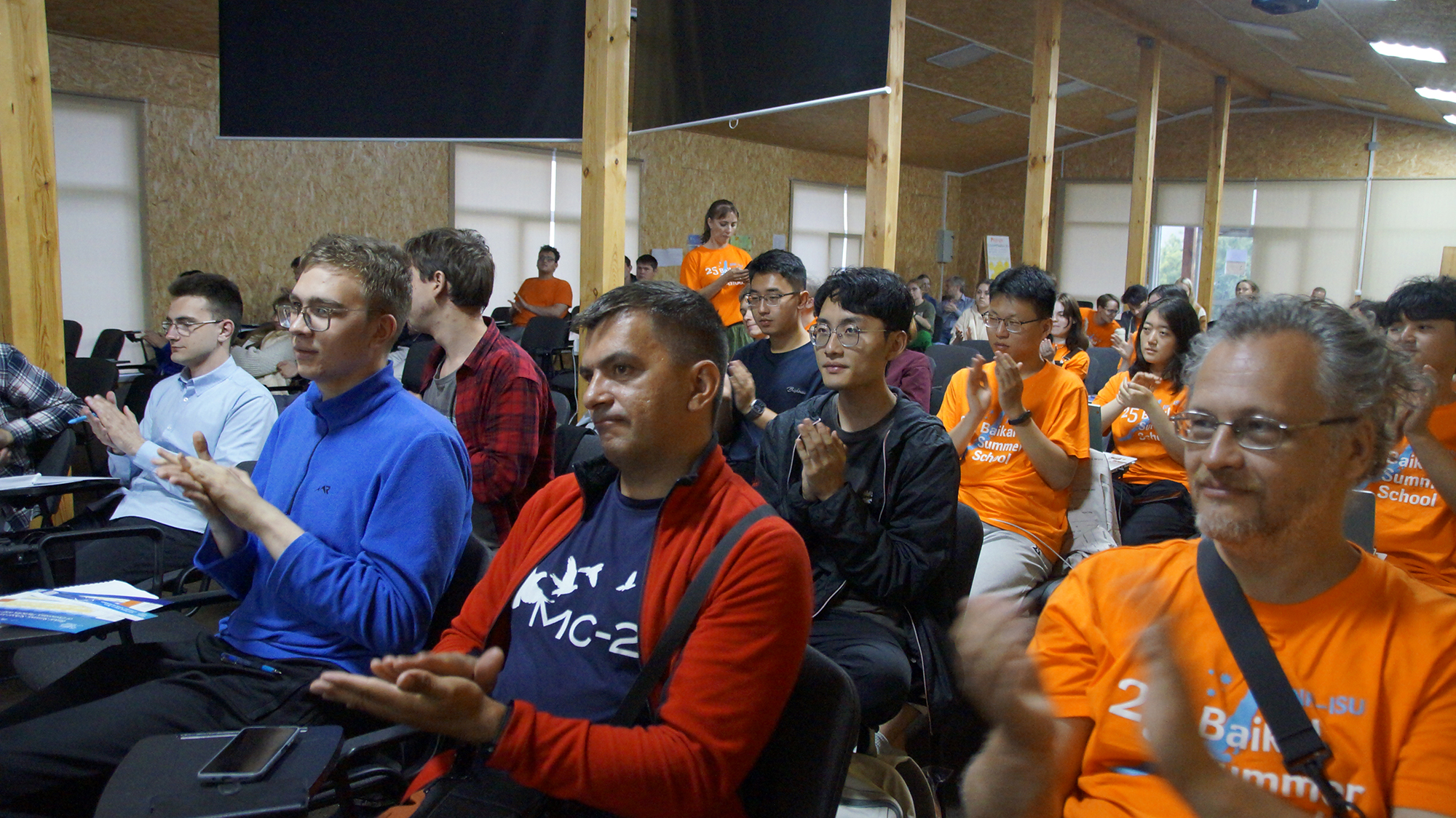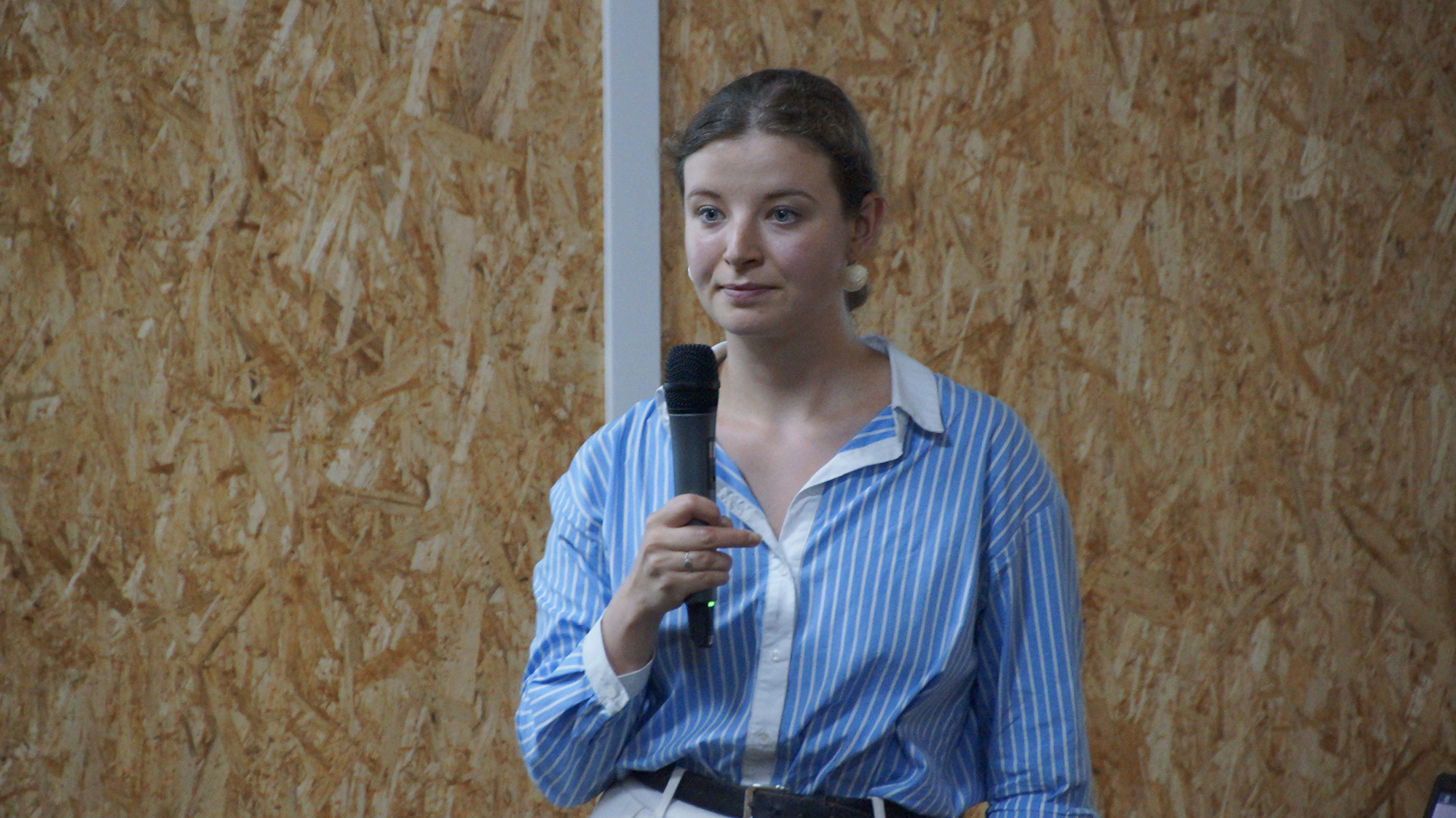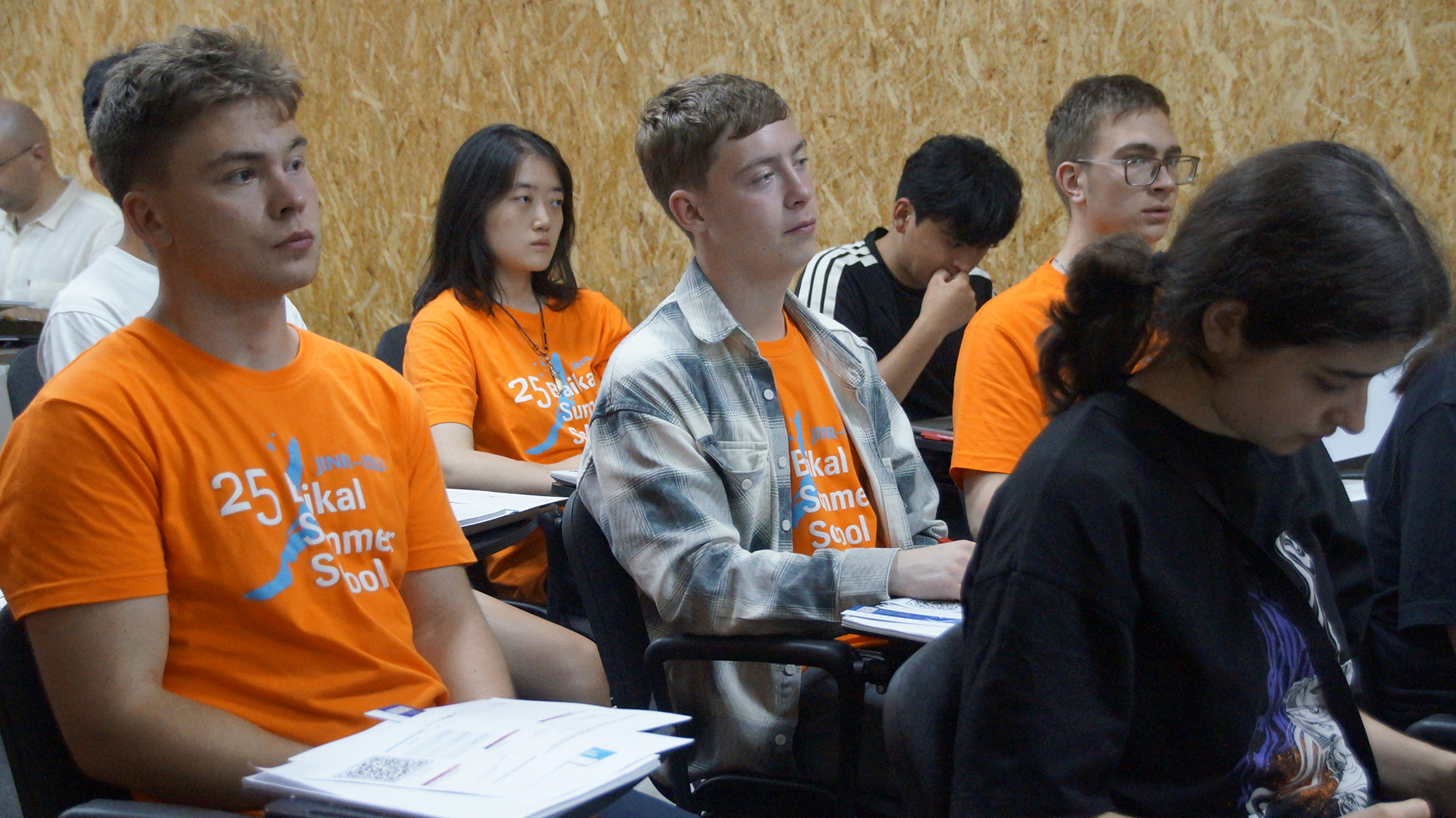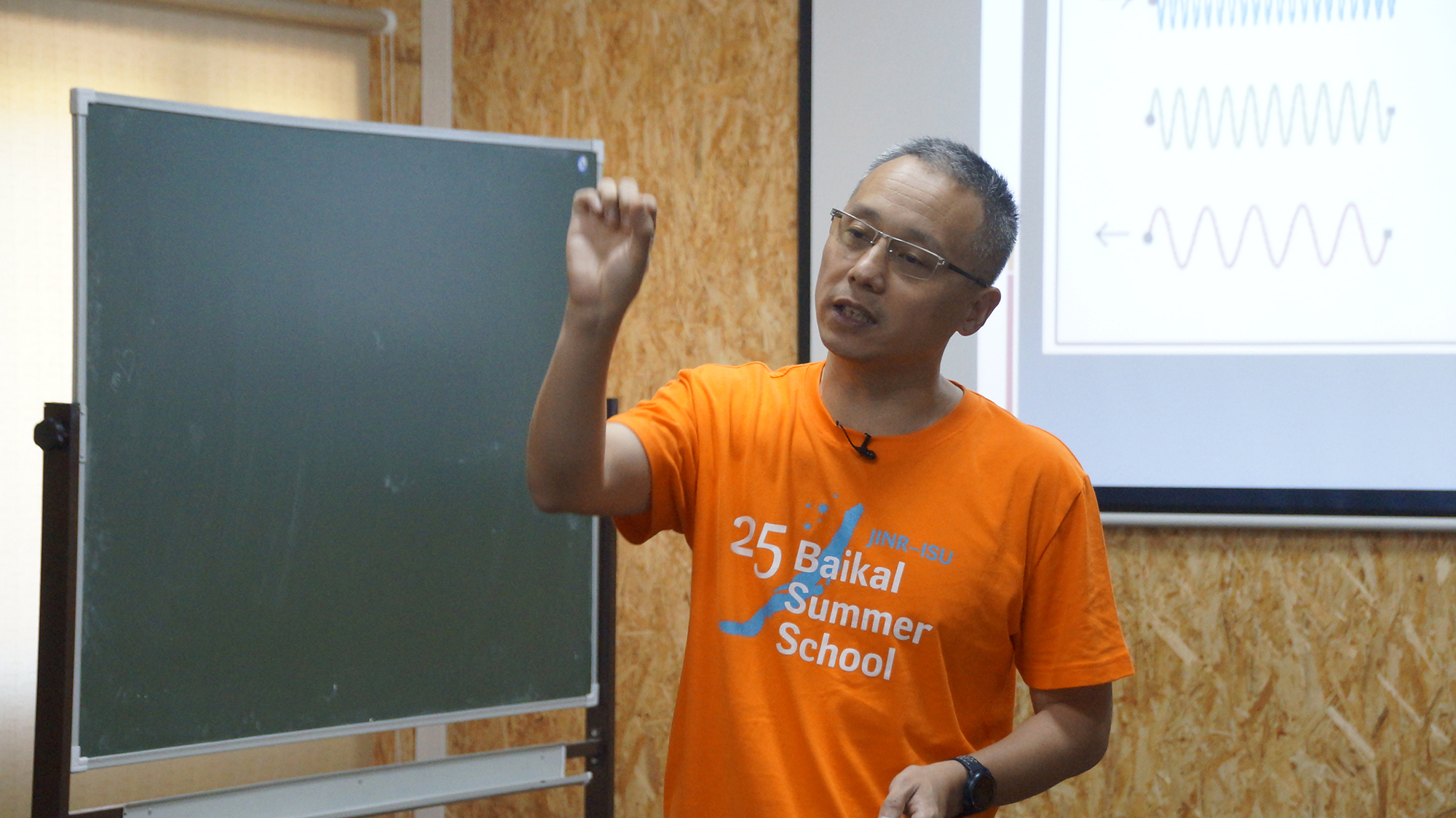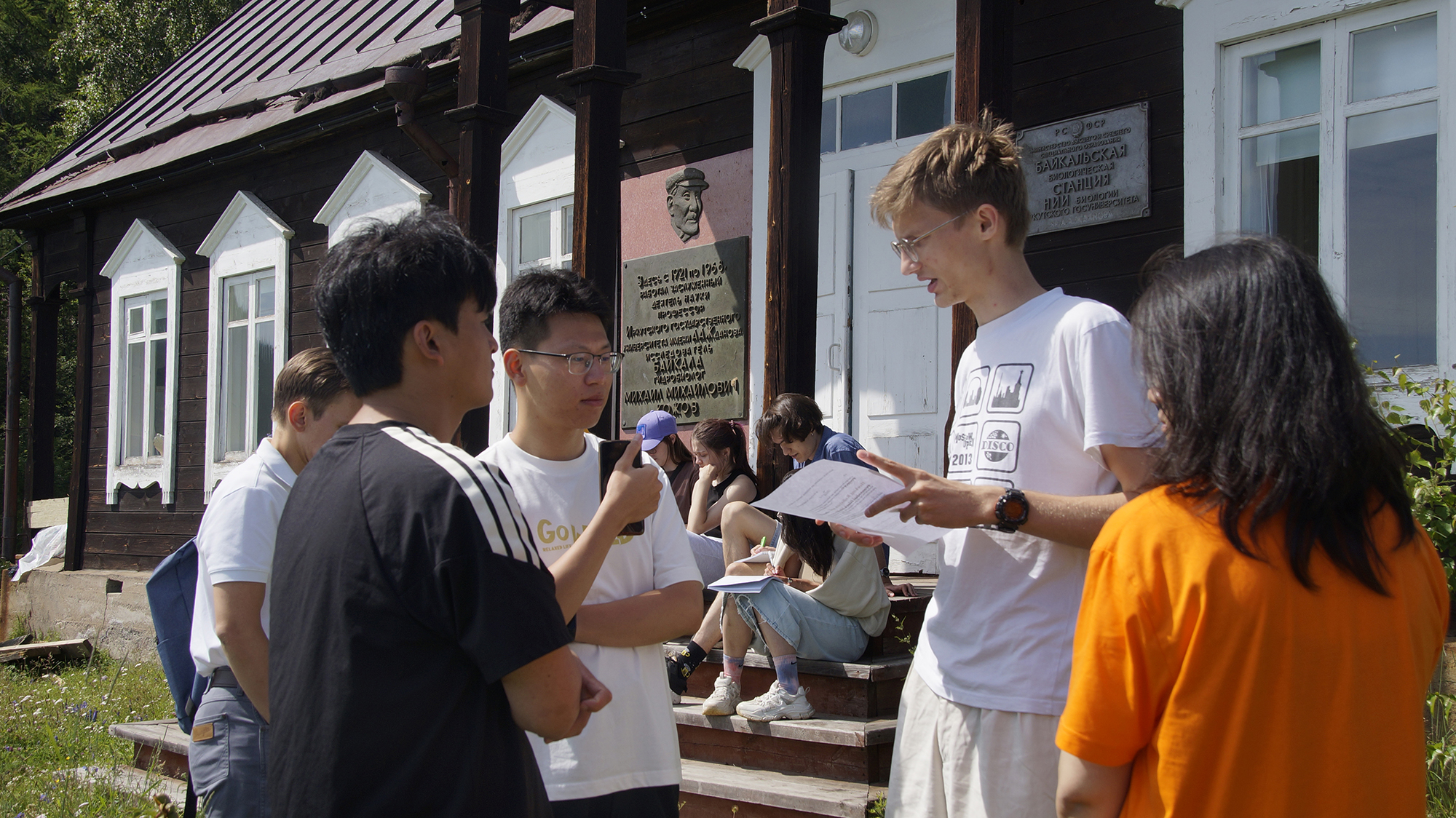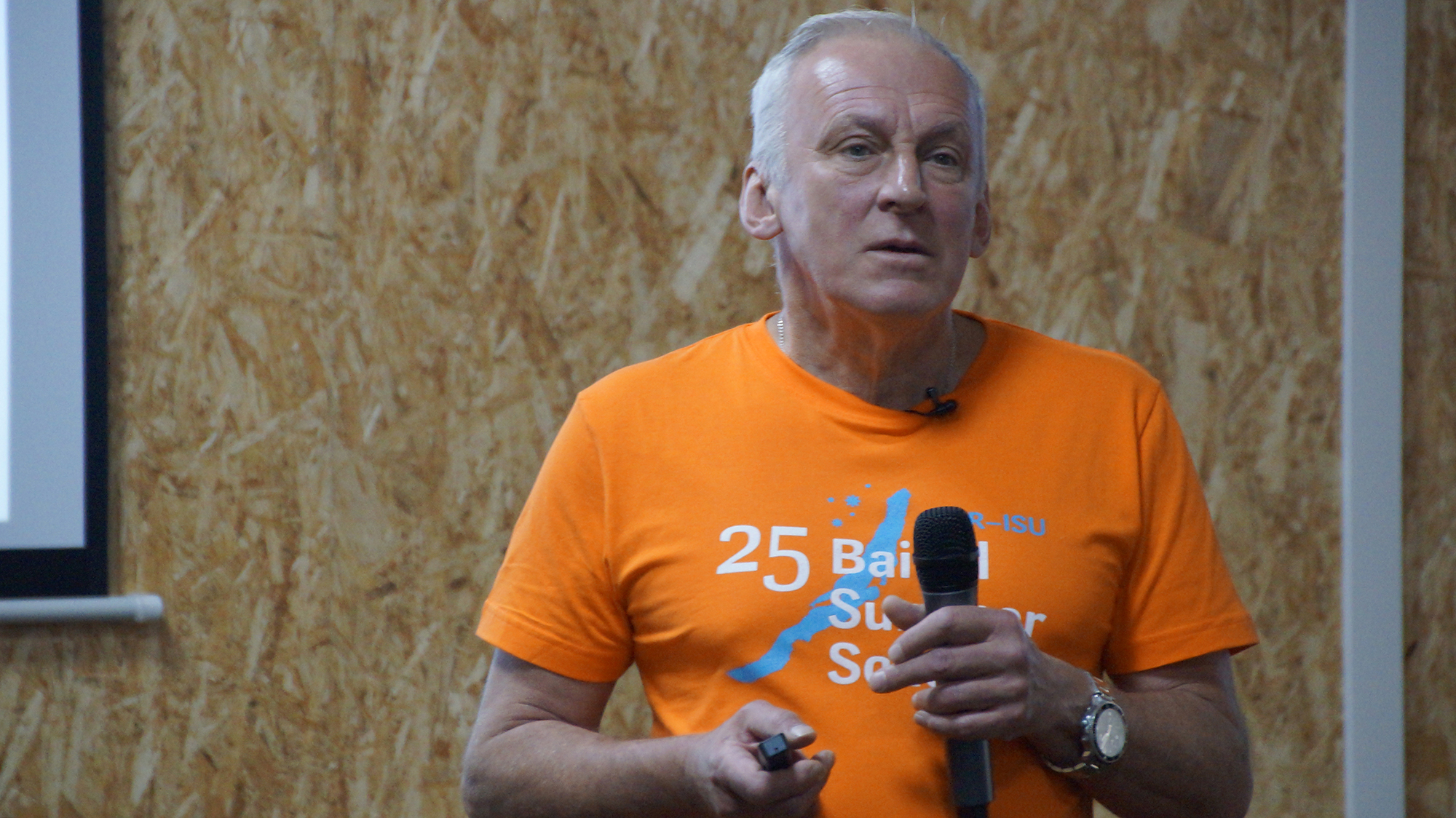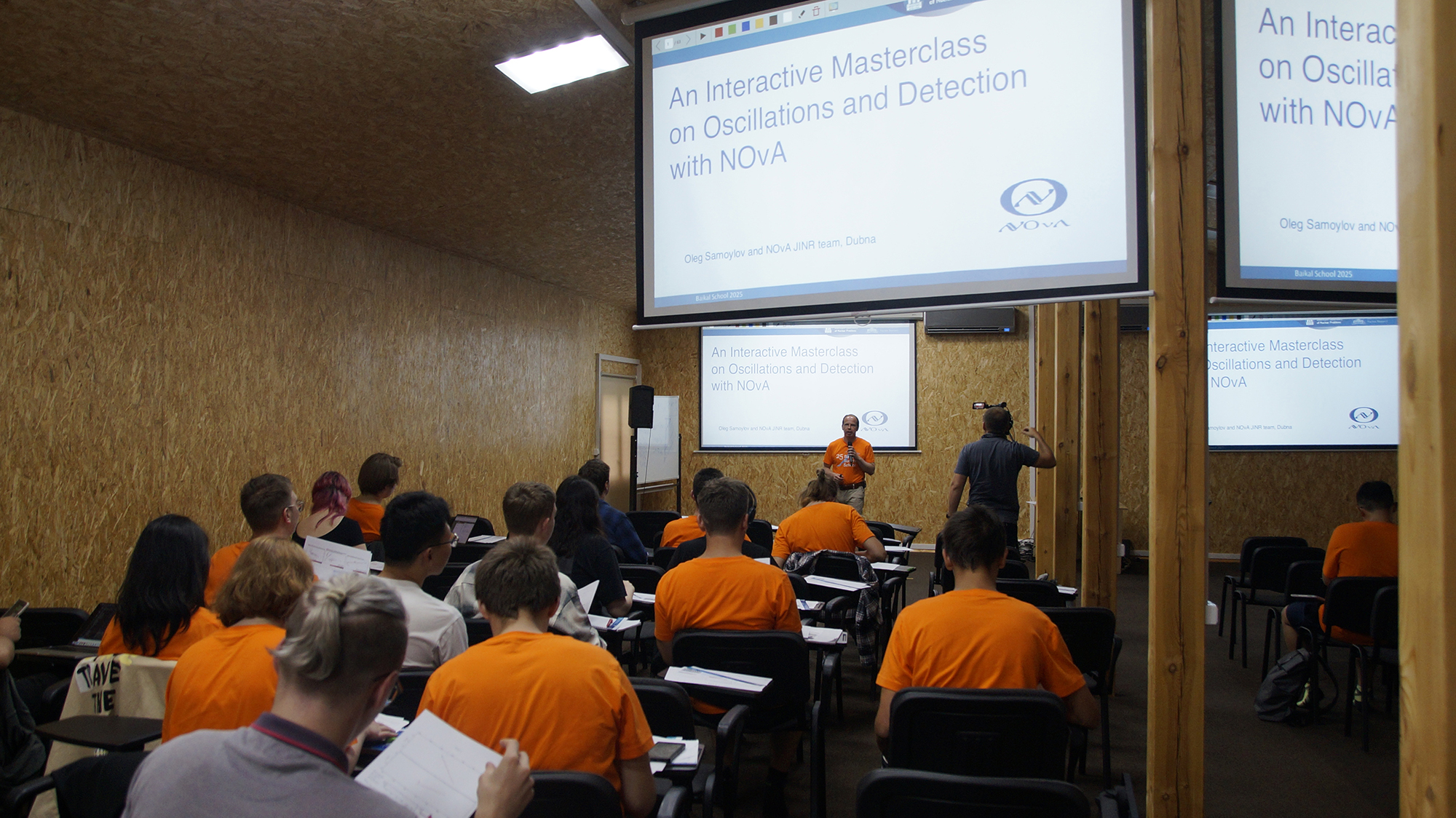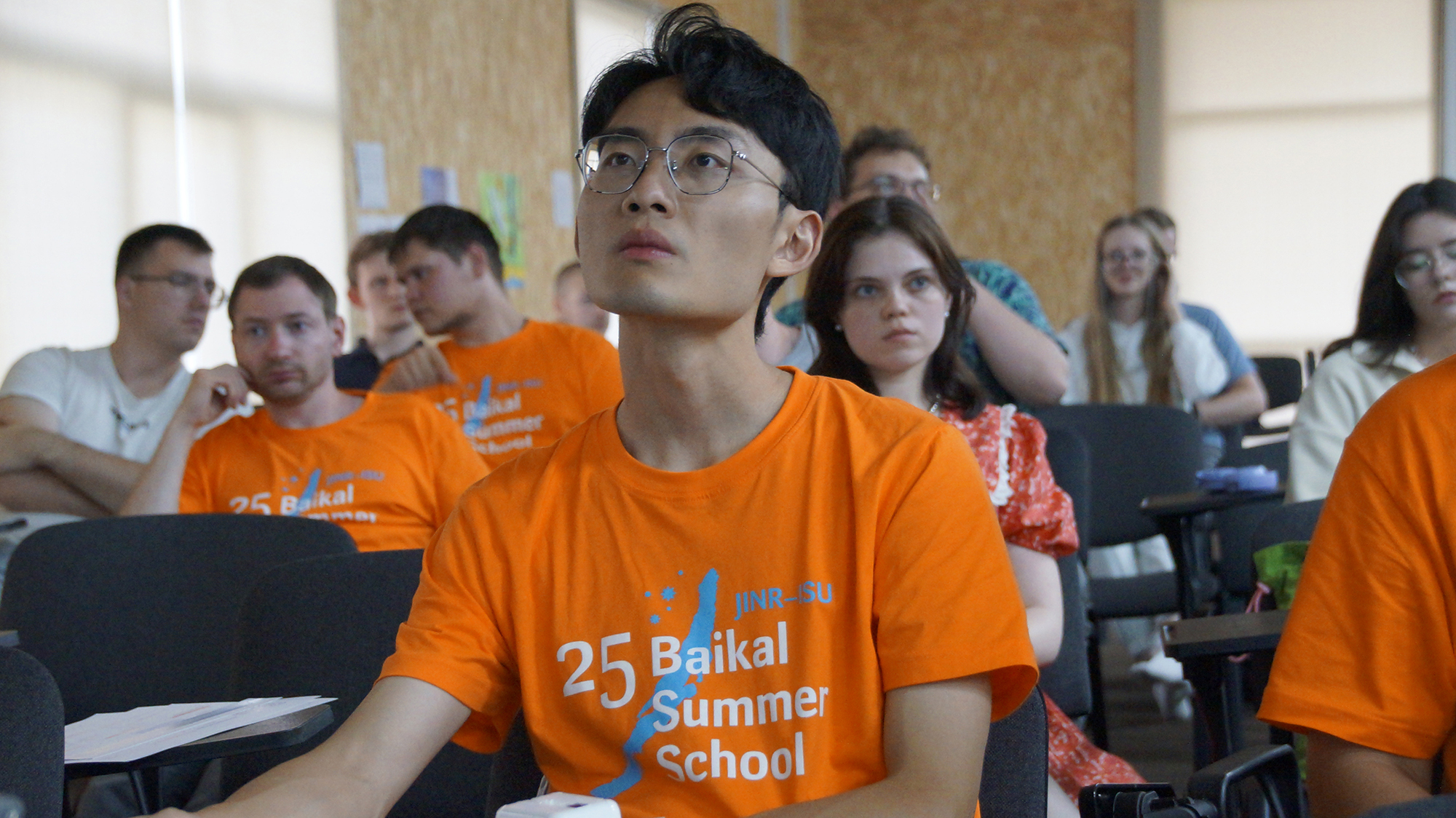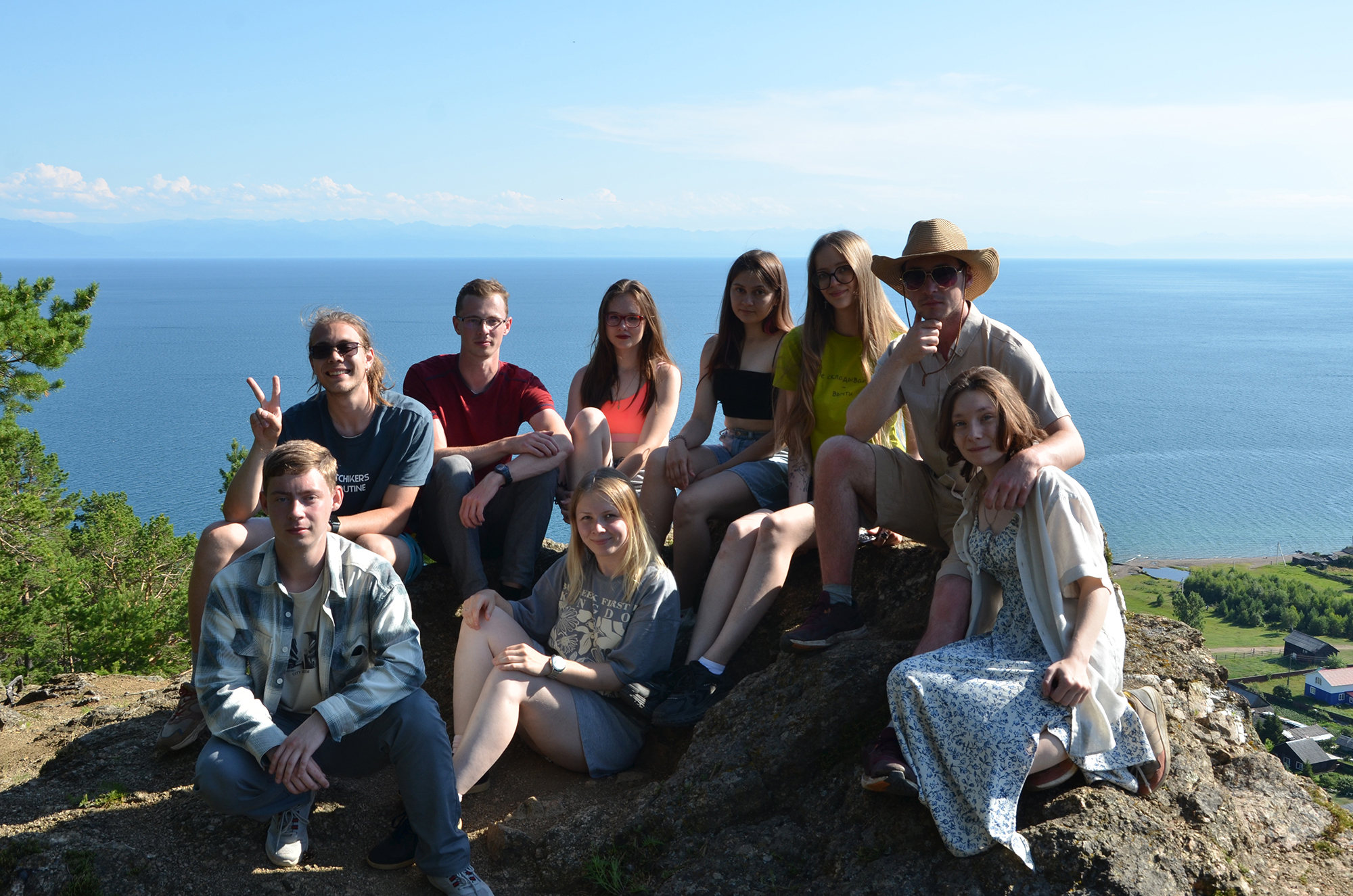25th Baikal Summer School on Elementary Particle Physics and Astrophysics finished
News, 24 July 2025
From 11 to 18 July 2025, the 25th International Baikal Summer School on Elementary Particle Physics and Astrophysics took place in Bolshiye Koty Village, Irkutsk Region, Russia, on the territory of the Baikal Biological Station of Irkutsk State University. The event is organized by the Joint Institute for Nuclear Research and Irkutsk State University. This year, the school was held with the information support of the Decade of Science and Technology in Russia. The Teach-in educational platform provided sponsorship for Moscow State Univesity students.
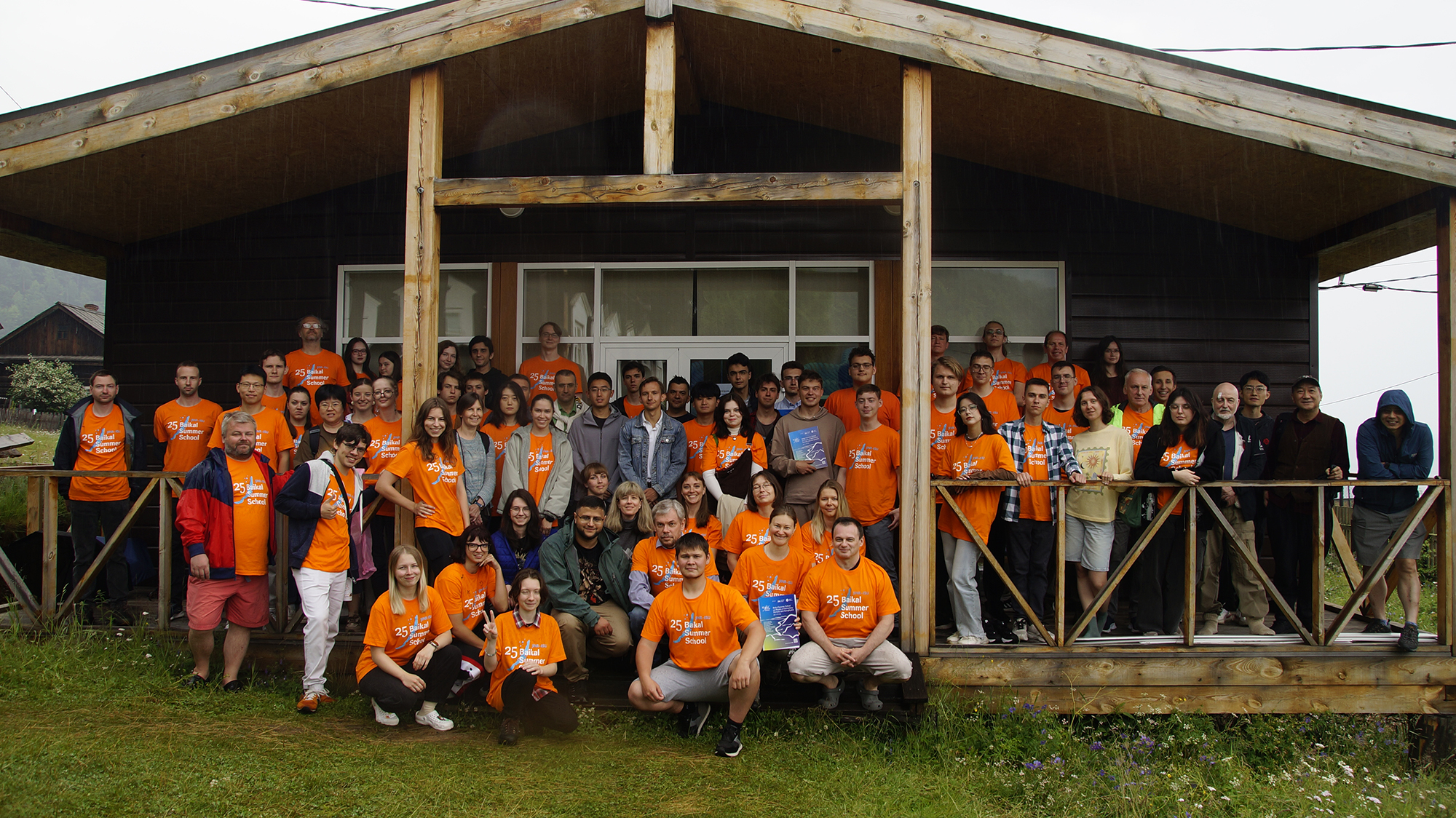 Photo by Alexandra Ivanova and Sofia Murzakova
Photo by Alexandra Ivanova and Sofia Murzakova
The event’s programme was extensive: lectures on neutrino, gamma-ray, and multi-messenger astronomy, jets of active galactic nuclei, particle acceleration mechanisms, dark matter, gravity, black holes, the Standard Model and physics beyond it, neutrino physics and its prospects, precision detector technologies for experiments in high energy physics, and engaging hands-on classes on modelling in Geant4. This year’s speakers were Vladimir Aynutdinov (Institute for Nuclear Research of the Russian Academy of Sciences (RAS), Ruizhi Yang (USTC), Jun-Hui Fan (GU), Lili Yang (SYSU), Elena Nokhrina (Lebedev Physical Institute), Evgeny Derishev (RAS Institute of Applied Physics), Jianglai Liu (TDLI), Yufeng Li, Liangjian Wen, Weidong Li, and Tao Lin (IHEP).
As part of the evening lectures, employees of the Laboratory of Nuclear Problems at JINR conducted several hands-on classes. Head of the Scientific and Experimental Department of Particle Physics Oleg Samoylov conducted a master class on recording oscillations in the NOvA Experiment. A researcher Alexandr Selyunin and an electronics engineer Alexey Chetverikov conducted a workshop on silicon photomultipliers, and a junior researcher at the Molecular Genetics of Cell Sector Alena Yakhnenko spoke about biological research in space.
“The school finished quickly: high-quality lectures, a rich cultural programme, a warm, friendly atmosphere,” Dmitry Naumov, DLNP JINR Deputy Director and school’s Organizing Committee Chair said. He noted the participants’ active work on scientific projects at the school. The students chose five out of eleven topics and defended these projects on the last day of the event. On the final days of the school, a film with historical footage of the first summer astrophysics schools at Lake Baikal was shown.
Dmitry Naumov thanked all the organizers of the school from Irkutsk State University and JINR, particularly Head of the Scientific Communications Group Elena Dubovik and a senior researcher at the Reactor Neutrino Sector and the school’s Organizing Committee Co-Chair Irina Perevalova. Dmitry Naumov thanked JINR, ISU, and DLNP JINR management and departments for their support, along with the team of the Teach-in platform, which provided professional recording of lectures, photo and video filming of the event.
Irina Perevalova expressed gratitude to the participants on behalf of the organizers for their personal contribution to the event. “The knowledge of leading lecturers, the enthusiasm and commitment of students to learning create an atmosphere in which everyone can share their experiences and ideas. Such involvement and Baikal’s unique nature make our school special. We hope that the participants are leaving with not only new knowledge, but also useful contacts,” Irina Perevalova said.
The students shared their impressions of the school.
Nikolay Pozdnyakov (Novosibirsk State University): “I enjoyed everything. The speakers managed to fit a lot of information into just two lecture series. Working on projects allowed the participants to broaden their knowledge on the topics, even though teamwork was not always easy”.
Daniil Zubchenko (Moscow State University): “The lectures discussed a variety of topics: astronomy, particle physics, detector technologies, and more. While the difficulty of the lectures depended on the attendees’ prior knowledge, there was something fascinating and engaging for everyone. The workshops were interesting and interactive. Project activities helped us delve deeper into our research topics and improve many skills, for example, the skill of proper project presentation. In addition, the school provided us an opportunity to meet people of different ages, from different universities and cities, with different interests”.
Dmitry Ostapovich (Moscow State University): “One of the ideas that were implemented particularly well was the introduction of group work, which made us talk, network, and, as a result, make friends in the group. In addition, projects are a fun and effective way to immerse yourself in a subject. There was a perfect balance between educational and social activities”.
Background information
The International Summer School on the Physics of Elementary Particles and Astrophysics was established by Irkutsk State University and the Joint Institute for Nuclear Research as part of a cooperation agreement. The main objective of the event is to provide education and training of students, postgraduates, and young scientists in the modern aspects of particle physics and astrophysics by leading theoretical and experimental physicists, to facilitate networking, and to aid the participants in choosing the areas of research.
